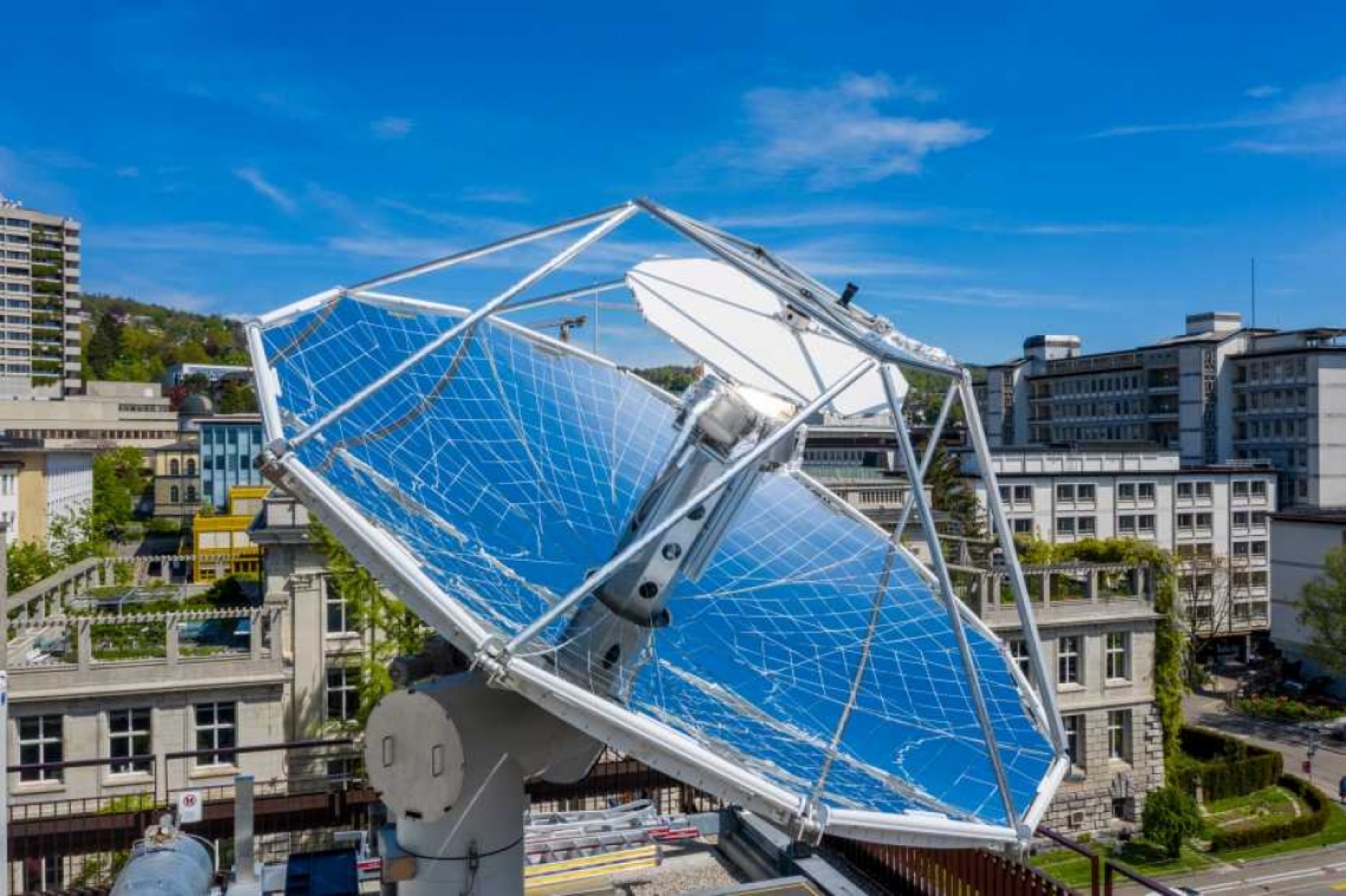CO2-neutral fuels are of central importance for more sustainable aviation and shipping. ETH researchers have built a solar plant that can be used to produce synthetic liquid fuels that only release as much CO2 during combustion as was previously extracted from the air. CO2 and water are separated directly from the ambient air and split with solar energy. The product is syngas, a mixture of hydrogen and carbon monoxide, which is then processed into kerosene, methanol or other hydrocarbons. These can be used directly in the existing global transport infrastructure.
"With this plant we are proving that the production of sustainable fuel from sunlight and air also works under real conditions," explains Aldo Steinfeld, Professor for Renewable Energy Sources at ETH Zurich, who developed the technology with his research group, and emphasizes the special feature of the plant: "The thermochemical process uses the entire solar spectrum and runs at high temperatures. This enables fast reaction rates and a high degree of efficiency." The research facility is located in the heart of Zurich and serves ETH Zurich to promote research into sustainable fuels on site.
Small demonstration plant - great potential
The solar mini refinery on the roof of ETH Zurich proves the feasibility of the technology - even under the climatic conditions in Zurich - and produces around one decilitre of fuel per day. Steinfeld and his group are already testing the solar reactor on a large scale as part of the EU project sun-to-liquid near Madrid. At the same time as the Zurich mini refinery, the Madrid solar tower plant is being presented to the public today.
The next goal is to scale the technology to industrial size and achieve competitiveness. "A solar plant with an area of one square kilometre could produce 20,000 litres of kerosene per day. Theoretically, a facility on the surface of Switzerland or a third of the Mojave Desert in California can cover the kerosene requirements of the entire aviation industry. "Our goal is to use our technology to efficiently produce sustainable fuels in the future and thus contribute to reducing global CO2 emissions," says Philipp Furler, Director (CTO) of Synhelion and former PhD student in Steinfeld's group.
Already two spin-offs
Two spin-offs have emerged from the research group of Aldo Steinfeld: Synhelion was founded in 2016 and is working to bring solar fuel production technology to market. Climeworks was founded in 2010 and commercializes the technology for the capture of CO2 directly from the air.
The article was posted on the ETH Zurich website.















